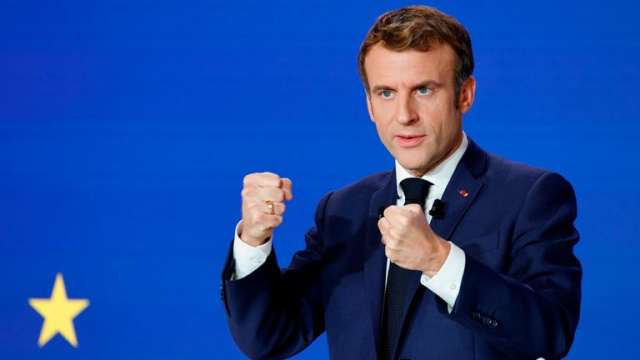French President Emmanuel Macron has advocated for a shift in approach towards Russia’s ongoing conflict in Ukraine. Macron’s proposition, centred around embracing a stance of strategic ambiguity, has drawn mixed reactions from key allies, including US President Joe Biden and German Chancellor Olaf Scholz.
The concept of strategic ambiguity entails refraining from ruling out any options, including military intervention, in dealing with Russia’s aggression in Ukraine.
This marks a departure from the Biden administration’s previous strategy, which prioritized avoiding actions that could provoke Moscow and further escalate the conflict.
Despite Macron’s belief that strategic ambiguity could serve as a deterrent against Russian aggression, both Biden and Scholz have expressed reservations about the potential consequences.
They fear that such a move could lead to division among allies and exacerbate tensions in the region. The issue came to the forefront during discussions between Macron, Biden, and Scholz, where Macron informed his counterparts of his intention to present the new approach at an upcoming summit in Paris.
However, Scholz cautioned against it, expressing concerns about potential discord among allies. One of the key points of contention revolves around the possibility of deploying Western personnel to Ukraine.
Macron’s reassurances that France would not seek NATO or US involvement if its troops were targeted by Russia have not fully assuaged concerns.
A US official raised apprehensions about the risk of Russia targeting French troops, potentially dragging France and other Western countries into the conflict.
Despite these concerns, Macron has remained steadfast in his position, indicating to allies that no NATO or US involvement would be sought if Russian forces were to target French troops.
He cited France’s history of enduring losses in military campaigns without seeking assistance from allies, drawing parallels to past operations in Africa.
The debate reached a climax during the summit in Paris, where Macron faced overwhelming opposition to the idea of sending troops to Ukraine.
However, he emphasized that while there was no consensus on troop deployment, “nothing should be ruled out” in the pursuit of a resolution to the conflict.
Amidst these discussions, Russia’s foreign minister has made claims that 1,500 French troops will be deployed in Ukraine. However, Macron has not confirmed these assertions, further adding to the uncertainty surrounding the situation.
The debate surrounding strategic ambiguity underscores the complex dynamics at play in the Ukraine conflict and the challenges of maintaining unity among Western allies in the face of Russian aggression.
As tensions continue to simmer, the world watches closely to see how Macron’s proposal will shape the trajectory of the conflict and the broader geopolitical landscape.
This article was created using automation and was thoroughly edited and fact-checked by one of our editorial staff members




